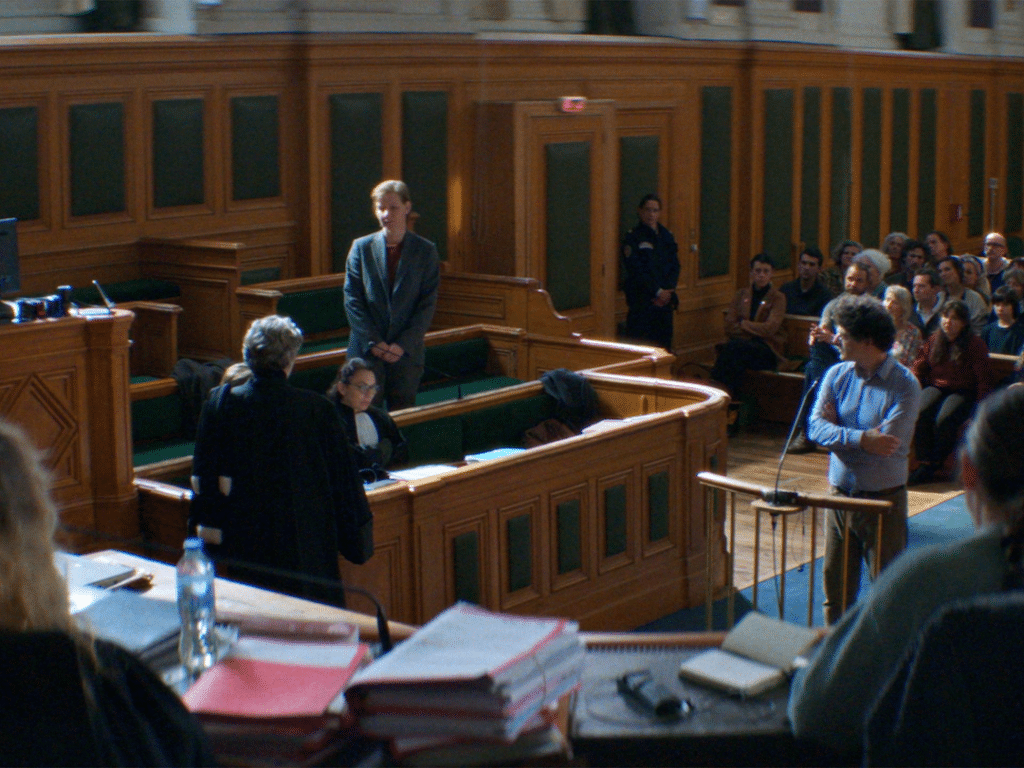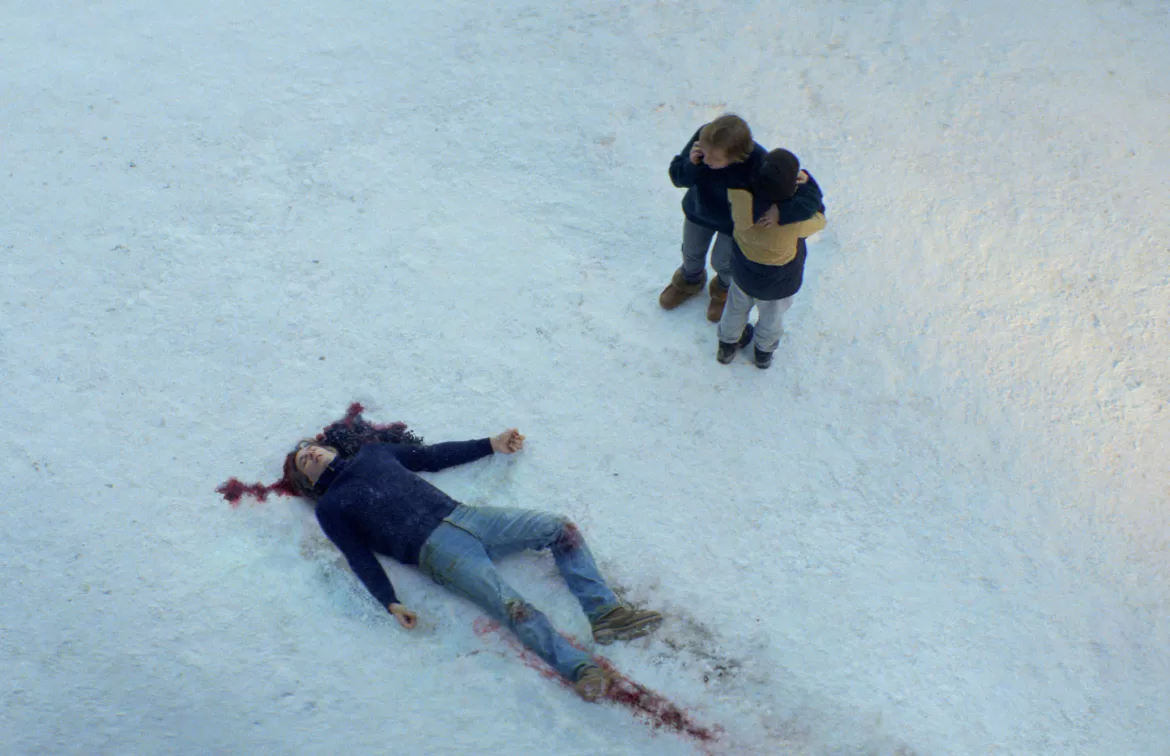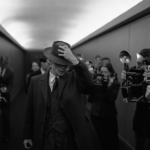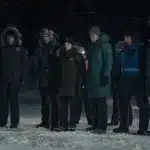It is Oscar season, which can mean some real standouts I might not have seen otherwise. In the past this list has included such films as The Banshees of Inisherin, Sound of Metal, and Lady Bird. Then there are films that feel a bit more like homework going into them, which included for me Tár, Drive My Car, and Dunkirk. (Doesn’t mean I didn’t like some of them, but I was just perhaps less enthusiastic going in). ‘Anatomy of a Fall’ is one I thought going in fell in the middle with my expectations as the promotional material didn’t engage with me; however, what I heard from critics who loved the film kept me hopeful. Alas at the end of the day my hopes were dashed, and though it was peppered with some intriguing scenes, and certainly some excellent acting, it was closer to ‘Anatomy of a Snore’ than a ‘Fall’.
‘Anatomy of a Fall’ begins with German born writer Sandra Voyter, played by Sandra Hüller, who is inside her isolated French chalet, alongside her husband upstairs in the house (heard but not seen), and her son on the main floor. Hüller is speaking with a young lady in the house, but their discussion is halted when the husband ‘s music, a certainly memorable steel drum version of 50 Cent’s P.I,M.P. by Bacao Rhythm & Steel Band, is played at such a volume no one can hear themselves and the two women decide to reschedule. Shortly after the son Daniel, portrayed by Milo Machado Graner, takes his guide dog out into the snow around the chalet. Upon returning Daniel, who is visually impaired, hears a sound and finds his father Vincent Renzi, played by Swann Arlaud, lying dead in the snow. Sandra rushes out and finds Daniel, and her husband dead, and calls the authority. Quickly after blame is placed upon Sandra for the fall, and a court case to determine guilt, accident, or suicide ensues.

ANATOMY OF A FALL (Source: NEON)
‘Anatomy of a Fall’ does a great job of setting the family dynamic at the start, with a clearly fractitious relationship between Sandra and her husband Vincent. Sandra appears to be flirting with the young woman in the opening scene, and whether Vincent was aware of this or not, one has to imagine there’s some aggression directed at Sandra as relayed in the music. This scene works incredibly well as an opening scene; however, the film seems to drag thereafter as we see Sandra have to explain, and re-explain, the incident, even before the trial begins.
Once the trial begins the film starts to regain momentum; however, its propelled more for me thanks to the novelty of the French justice system to my American eyes than by the story itself. Sandra has to repeat often why she believes her husband may have fell (or later in the trial, why he may have committed suicide), and though the family drama behind it is certainly interesting, it’s not laid out in a manner that really captivates. We feel like we’re in the trial in real time, which means we feel all the hours that seem to pass by, and unless you’re incredibly invested in the result then there’s not much to cling to.
Perhaps the sole bright spots are the performances, as Hüller, and even more so Graner, really sell their characters. Graner’s character Daniel especially late in the film makes some rather unique choices, but its in these moments where you’re truly wowed by this young actor’s pure acting abilities. (Graner’s relative newness makes this all the more amazing.) Hüller’s portrayal is more inward, as you have to watch her character react as much with her eyes as her voice or body especially in the court room, when she knows that how she is perceived may go a long way to determining her guilt. Its no wonder why I’ve seen these two so singled out for their performances.
Ultimately these portrayals were not enough to save the film overall, and I came away more mixed. Perhaps if you enter this film more as a character study of a partner, or a failing marriage, then maybe it’ll take you along for the ride. However, as I realized this film’s interest was less in the real drama of the verdict, and more engaged in these long drawn out scenes, many which didn’t even seem relevant to the trial, it lost me. Perhaps this is a film you may fall for; however, for me, it only somewhat delivered.









